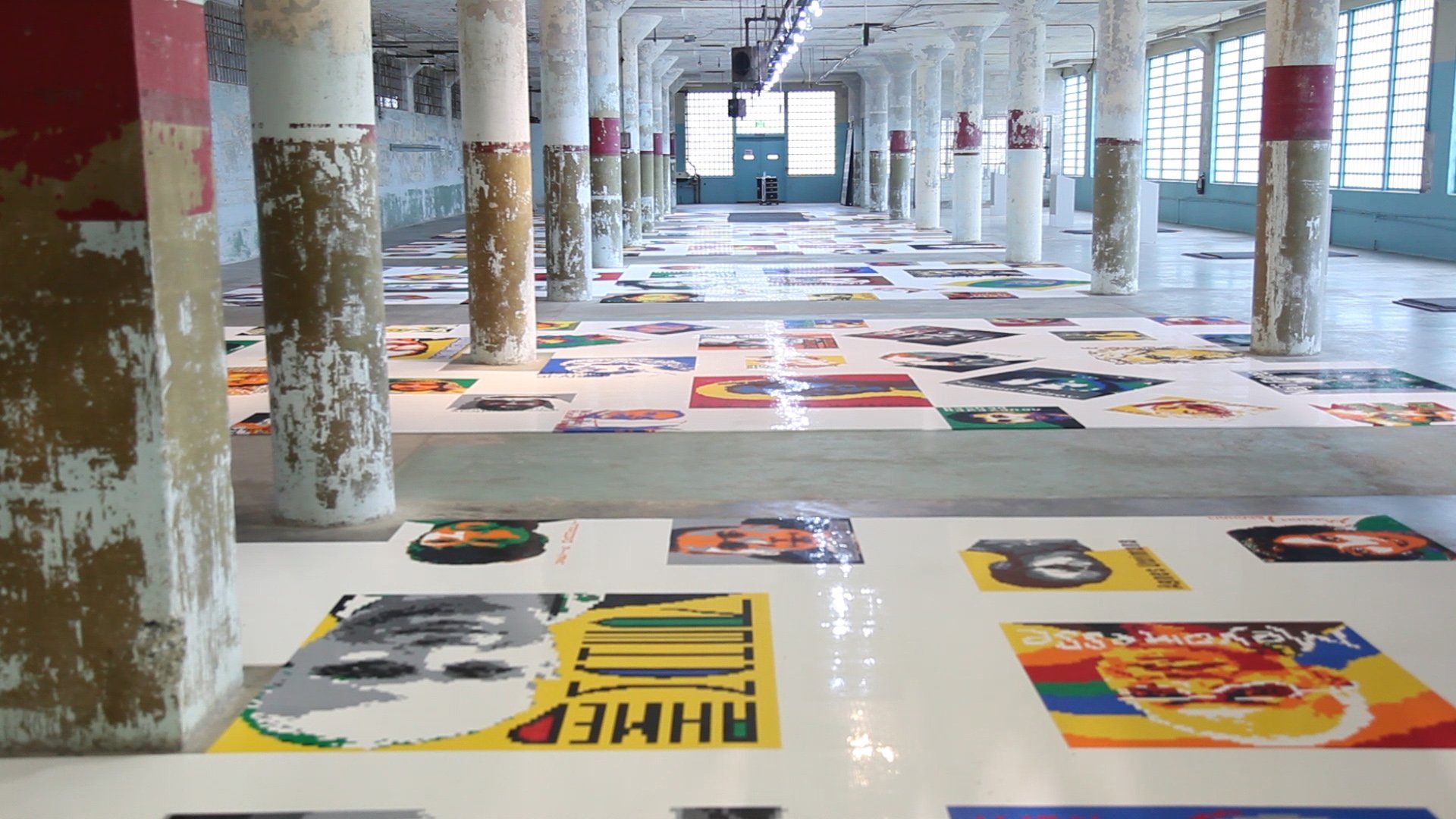No film review should begin with gray cynicism about the value of art. That is, however, the concern that “Ai Weiwei: Yours Truly” appeared to invite on paper. A documentary on the design and inspiration behind an eclectic San Francisco art exhibition didn’t appear to carry much potential for social and political weight, even if the installation in question themed itself around political freedom. Films about art exhibits are usually just victory laps for their producers, after all — to try and charge one with the severity of China’s famed artist-turned-activist and the plight of prisoners of conscience seemed hopelessly idealistic, to say the least. What role could a few sculptures, some postcards and a mosaic of Lego bricks really play in the grand scales of worldwide political activism?
Maybe I was simply jaded from the long lines and pomp of the SF Film Festival. In any case, “Ai Weiwei: Yours Truly” answered my concerns with aplomb. In ‘Yours Truly,’ Ai and first-time director Cheryl Haines tell an ambitious narrative that combines the chilling details of Ai’s persecution in China, the conception of his acclaimed 2014 installation on Alcatraz Island and its poignant impression on activists across the globe. They just about pull it off thanks to their heart and sincerity, and offer a thoughtful reminder of the global, interconnected stories of political and social struggle, and the powerful ways art can impact it.
Weighty issues are at the heart of “Ai Weiwei: Yours Truly” — from the 176 prisoners of conscience around the world that Ai’s exhibition sought to depict, to the political repression in China that punctuated Ai Weiwei’s own career, as well as pointed reminders of incarcerated activists and whistle-blowers in the United States. “Yours Truly” does well to connect them within the narrative of Ai’s 2014 exhibition, “@Large,” displayed on Alcatraz Island and curated by Haines. Ai and Haines display a genuine attentiveness to the political dimensions of their exhibition. Reflections on Ai’s activism in China and Alcatraz’s own history of political controversy punctuate the obligatory beats explaining the design and conception of the exhibit. Refreshingly thoughtful, also, is the global dimension of Haines’ narrative, which leaps freely from Communist China to Native American history to reflections on the Arab Spring in Cairo.
In cutaways, Haines brings an affecting depth to the details of the project — Ai relates a ceramic sculpture of a floral bouquet in an Alcatraz toilet to his father’s menial punishment as a poet in the aftermath of China’s Hundred Flowers Movement in the ’50s. The logistical challenges of the exhibition — co-ordinated from Beijing by Ai, who was never able to see it in San Francisco — are given poignance when they’re linked to the spells of house arrest Ai was placed under by Chinese authorities. Haines leverages her insight as “@Large”’s curator well, and juggles the film’s various narratives mostly successfully. The more abrupt tonal transitions (perhaps to be expected, considering the subject matter) are compensated for by a few well-placed beats of levity.
And just as well, for ‘Yours Truly’ ultimately seeks to be an uplifting film. Haines’ story culminates in a reflection on the centerpiece of “@Large,” where visitors were invited to write postcards to be sent to the prisoners of conscience depicted in the exhibition. For a brief moment, it seems as if Ai and Haines’ idealism has finally outpaced them. Surely, as interviewed visitors speak generically of sending well wishes to activists they’ve never heard of halfway across the world, these cards seem to be nothing more than ineffectual souvenirs of a transient art exhibit. But Haines allays any doubts in a montage of interviews and biographies from the letters’ recipients — earnest testimonies from the likes of Chelsea Manning and ex-CIA whistleblower John Kiriakou reveal the heartening impact that receiving “@Large”’s letters had for them, and how vital those expressions of concern and support were in the isolation of prison. In a particularly moving segment, Haines visits Egyptian activist Ahmed Maher, recently freed and reunited with his family, and presents him with a replica of his Lego portrait to assemble with his children.
It’s an inspiring affirmation of the role art, and the individual, can play in supporting the causes of political and social campaigners around the world. A little idealistic and self-congratulatory? Perhaps, but Ai and Haines more than earn such praise in their thoughtful rendering of the personal stories of struggle and oppression that motivated “@Large”’s outreach. As indie docs and thrillers vie for attention across San Francisco’s theaters this month, “Ai Weiwei: Yours Truly” ultimately puts forward a global story with very real stakes — a story that we, even as spectators, can participate in through our attention and concern.
Contact Daniel Wu at dwu21 ‘at’ stanford.edu.
